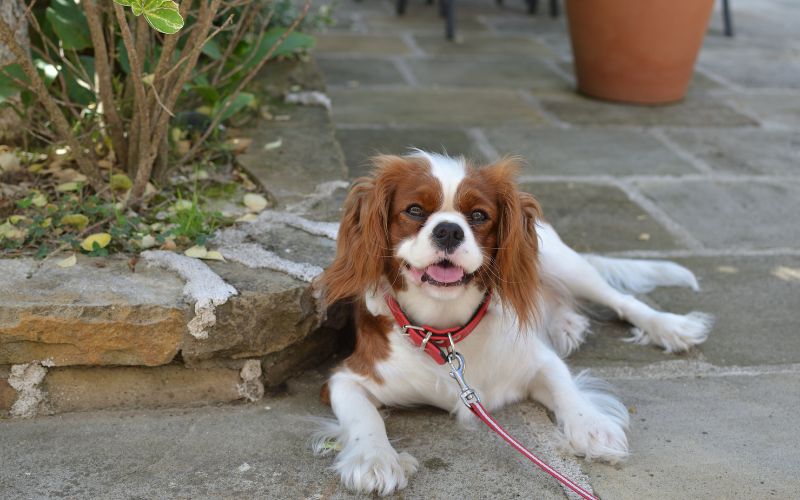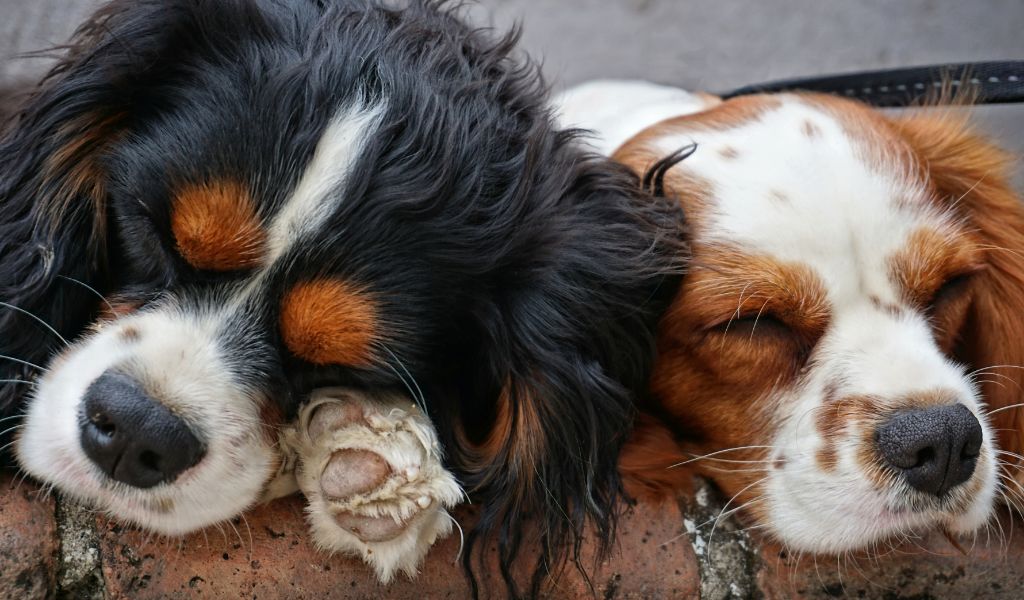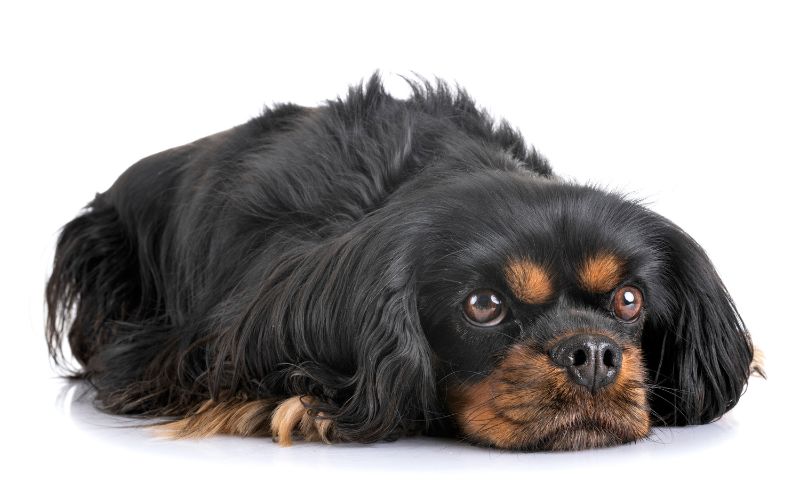Barking is a natural behaviour for dogs, and Cavalier King Charles Spaniels are no exception.
However, excessive barking can be a nuisance for both you and your neighbours.
If you’re struggling to keep your CKCS quiet, understanding why he’s barking can help you address the problem.
Cavaliers will bark for a number of different reasons and if you can work out why your spaniel is barking then you are one step closer to dealing with it. Barking results from fear, being disturbed, territorial behaviour, pain, play and other factors.
Why do Cavalier King Charles spaniels bark?
There are a number of reasons why your Cavalier King Charles spaniel may be barking excessively.
Some common causes include:
Anxiety or fear: Cavaliers are notoriously anxious dogs, and their fear can manifest in excessive barking.
If your dog is afraid of loud noises, strangers, or other animals, he may bark excessively to try to scare them away.
Boredom or loneliness: If your CKCS is left alone for long periods of time, he may bark out of boredom or loneliness.
This is especially common in puppies and young dogs who haven’t yet learned to entertain themselves.
Territorial behaviour: Cavaliers are very protective of their homes and families, and may bark to warn away perceived threats.

This behaviour is more common in male dogs, but any dog may display it if he feels his territory is being invaded.
Pain or discomfort: If your Cavalier is in pain or uncomfortable, he may bark as a way of communicating this to you.
Dogs in pain often have a high-pitched, frantic bark that’s different from their usual tone.
Excitement or play: Sometimes, dogs will bark out of excitement or to invite you to play with them.
This is especially common in young, high-energy dogs who need a lot of exercise.
If your Cavalier is barking excessively, it’s important to figure out the reason behind it so you can address the problem.
If your dog is anxious or fearful, for example, you may need to provide more security and reassurance.
If he’s bored, you’ll need to find ways to keep him occupied.
And if he’s in pain, you’ll need to take him to the vet to identify and treat the problem.

How can you tell when your Cavalier is barking out of excitement, boredom, or fear?
One way to determine whether your Cavalier is barking out of excitement, boredom, or fear is to observe his body language.
A dog who is excited or happy will often have a wagging tail and a relaxed body.
He may jump up and down or run around in circles.
A dog who is bored may pace back and forth or seem restless.
He may also bark more when you’re around, as he’s hoping you’ll provide some entertainment.
A dog who is fearful or anxious will often have a tense body and a tail that is held low or between his legs.
He may also avoid eye contact and try to hide from the thing he’s afraid of.
If you’re still not sure why your Cavalier is barking, you can always consult with a vet or animal behaviourist for help.
They will be able to observe your dog’s behaviour and give you tailored advice on how to address the problem.
What are some tips for training your dog to stop barking excessively ?
If you’re struggling to stop your Cavalier from barking excessively, there are a few things you can try.
Positive reinforcement: rewarding your dog when he is quiet can help to reinforce this behaviour.
Try giving him a treat or verbal praise when he’s not barking.
Exercise: making sure your dog gets enough exercise can help to tire him out and reduce his overall energy level. This may help to reduce excessive barking.
Boredom busters: providing your dog with toys and puzzle feeders can help to keep his mind occupied and reduce boredom barking.
Behaviour modification: working with a certified animal behaviourist can help you to modify your dog’s behavior.
This may involve desensitization and counterconditioning exercises to help your dog feel more comfortable in situations that trigger his barking.
When should you seek professional help for excessive barking?
If you’ve tried training and behaviour modification exercises but your dog is still barking excessively, it may be time to seek professional help.
Your vet can rule out any medical problems that may be causing the problem.
They can also refer you to a certified animal behaviourist or canine behaviour specialist who can help you to modify your dog’s behaviour
How can you make sure your Cavalier King Charles Spaniel is happy and healthy?
There are a few things you can do to make sure your Cavalier King Charles Spaniel is happy and healthy while minimizing unwanted barking behaviour.
Make sure he’s getting enough exercise: A tired dog is a good dog.
Be sure to give your Cavalier plenty of chances to burn off energy through walks, runs, and playtime.
Keep him mentally stimulated: Boredom can lead to excessive barking, so it’s important to keep your Cavalier’s mind engaged with toys, puzzle feeders, and training exercises.
Avoid punishment: Yelling or punishing your dog is only going to make the problem worse.
Instead, focus on positive reinforcement and rewards when your cavalier is behaving well.
Final Words
Barking can often be a release of pent up energy by your Cavalier and, from my experience, I’ve found that tired spaniels ( all types ) tend to be very quiet.
If your Cavalier is an excessive barker then your first step should be more stimulation and exercise, in most cases this will reduce and potentially address the issue of too much doggy noise.
Like all things relating to your dog, if you have any concerns then you should always talk to your vet for their professional opinion and advice.




